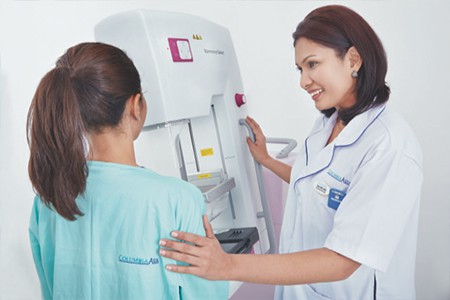Which Cancer Screening?
Monitoring the state of your health is necessary especially if you fall into the criteria that put you at risk of cancer. Furthermore, there are cancers that display no symptoms. These silent killers can only be detected if you get yourself screened regularly.
Isn’t a basic health screening enough?
While screenings are encouraged, it can sometimes be confusing to decide which type of screening to get, as there are plenty on offer. Some are packaged with tests you don’t need or missing the ones that you do need. For example, apart from checking blood sugar, cholesterol, bone density and the likes, a basic package may also include tumour markers at the most, but tumor markers alone are not enough to diagnose cancer. In fact, tumor markers can also show up in non-cancerous environments. Hence, you will need more specific screenings to detect cancer especially if you are at a high risk of getting a particular type of cancer.
Evidently, screenings can detect cancer growth at its earliest stage when the malignancy is minor and has not yet metastasized to other parts of the body. At this stage, there is a high possibility of you surviving cancer. However, there is no one-size-fits-all cancer screening. The screening you need very much depends on several factors comprising age, gender, family history and lifestyle. Read on for an idea of what to look for when deciding on a cancer screening package.
Most common cancer among females below 40
At below 40 years old, it is more the women who need to be vigilant because cancers such as cervical cancer happens mostly in this age group. In fact, it is the third most common cancer in Malaysia among females. The good news is, it is the easiest gynaecological cancer to prevent with regular Pap smears and HPV vaccinations.
“It is recommended for every woman to be vaccinated before they are sexually active. From that point on, Pap smear screening is recommended consecutively for two years and then every three years depending on the Pap smear results,” says Dr Manohari Ghandi Kijassingam, a medical officer at Columbia Asia Hospital – Bukit Rimau. She says that in Malaysia, the Human Papillomavirus or HPV immunisation programme has already been implemented as a modality for primary prevention. However, cervical screening programmes should be continued as HPV vaccination is expected to prevent only 71 per cent of cervical cancer.

At its early stage, the five-year survival rate for people with cervical cancer is 92 per cent. Once it has spread to the surrounding tissues, the five-year survival rate drastically decreases to 14 per cent.
After 40 cancer concerns
For women above 40, breast screenings will have to be an annual affair. This is especially vital if you have a family history of breast cancer. In fact, some women with a strong family history of breast cancer sign up for breast screenings at a much earlier age.
“Mammography is the most common screening test for breast cancer. Also, magnetic resonance imaging or better known as MRI, may be used to screen women who are at a high risk of getting breast cancer,” says Dr Manohari. She adds that in 2012, the Malaysia’s Ministry of Health implemented a nationwide mammogram screening for high-risk women through primary health care facilities. “Whether a woman should be screened for breast cancer and which screening test to be done, depends on their personal background such as age, lifestyle and family history.”
When a patient’s breast cancer is detected at its earliest stage with no signs that it has spread outside the breast, it can be treated with curative intent. At this stage, the five-year survival rate is at a 100 per cent advantage. As for non-detected breast cancer cases, the five-year survival rate falls to below 22 per cent.

Men, ageing and prostate cancer risks
The older men get, the higher the risk of prostate cancer. Thus, if you are male, you would need to be extra vigilant as you enter your 50s. Speak with a doctor to find out if you are in the high-risk group. Be upfront and share your family history. If you are high risk, you may need to get a prostate cancer screening yearly and as early as 40 years old. Otherwise, you only need to be re-tested every two to three years.
When prostate cancer is detected early, patients may have a five-year survival rate of an assuring 100 per cent. Once the cancer has spread beyond its localised area, this rate will drop to 30 per cent.
What happens if PCOS is left untreated?
Colorectal cancer has become the second most common cancer among the Malaysian population after cancer of the breast and the most common cancer among males (MNCR Report 2007-2011). Tests are used to screen for different types of colorectal cancer when a person does not have symptoms. It should be done every five to 10 years, depending on your risks. “Studies show that some screening tests for colorectal cancer help find cancer at an early stage and may decrease the number of deaths from the disease,” says Dr Manohari. “Among the types of tests used to screen for colorectal cancer are fecal occult blood test, sigmoidoscopy and colonoscopy.”
The five-year survival rate among patients with localised early stage colorectal cancer is 90 per cent but if undetected and untreated, this number drops to 14 per cent.

Lung cancer tests even after quitting cigarettes
A lung cancer screening should also be considered after 40 years of age, even if you have quit smoking. Lung cancer is overall the third commonest cancer in Malaysia and the most common cause of cancer deaths accounting for 19.8 per cent of all medically certified cancer-related mortality in this country. “Cigarette smoking is a major aetiological risk factor. Some 92 per cent of Malaysian male lung cancer patients have a significant smoking history,” says Dr Manohari.
Screening with chest X-rays and/or sputum cytology do not decrease the risk of dying from lung cancer. Screening tests for lung cancer are still being studied in clinical trials. If you are at risk of lung cancer, you should be tested every year.
The five-year survival rate of lung cancer that is detected early is 56 per cent but when the cancer has spread to other organs, the five-year survival rate is only five per cent.
Before cancer happens
To know if you are at risk of any cancer types, please see a qualified medical practitioner. Given that cancers are survivable if found early, it makes perfect sense to get yourself screened regularly. It may save your life.
“In the meantime, keep up with the regular exercises, an intake of balanced meals, a healthy diet and good lifestyle choices so you can ensure great overall health,” stresses Dr Manohari. “A healthy lifestyle can decrease the overall susceptibility of the development of cancer.”
Share:
Was this article helpful?
Share:
Was this article helpful?
Health Packages
Elevate your health with tailored health packages at Columbia Asia Hospital. Take charge of your health journey today.
AIA Policyholders Self-pay Benefits
Pink October 2024
From
RM80

